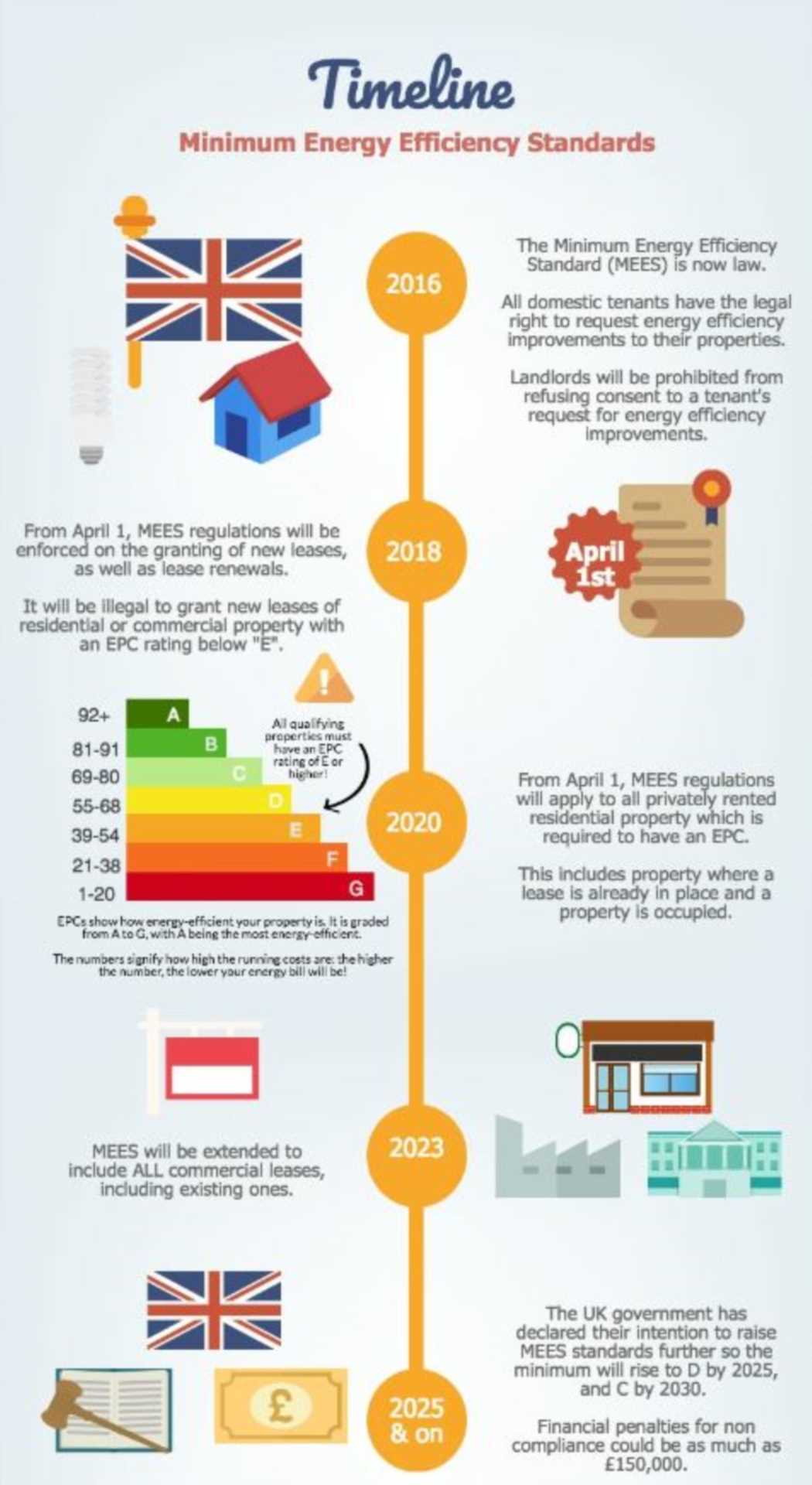
Date Published 31 March 2020
The Energy Efficiency (Private Rented Property) (England and Wales) Regulations 2015 established the MEES which set a minimum energy efficiency level for all domestic private rented properties in England and Wales that are required to have an Energy Performance Certificate (EPC). Where this applies, and the property has an EPC rating of F or G, landlords must take appropriate steps to comply with the requirements of the MEES regulations which is that the properties need to have a minimum rating E.
Any properties let after 1 April 2018 had to have a minimum EPC rating E. From 1 April 2020 the prohibition on letting properties with an EPC rating below E (i.e. F and G) will be extended to cover all relevant properties, even where there the tenants have been continuously in situ since before 1 April 2018.
Landlords with properties assessed at EPC F and G must now improve the property rating to E or register an exemption if they want to continue to let it.
The validity of all existing exemptions registered on the basis that the landlords could not get any funding for energy efficiency improvements will end for individual properties on 31 March 2020, instead of after five years. Landlords who had registered such exemptions prior to 1 April 2019 will now be required to make improvements (up to £3,500) to ensure their properties achieve EPC E by 1 April 2020 – unless a further exemption is successfully applied for.
Since 1 April 2019, landlords of domestic properties with an EPC rating below E must carry out up to £3,500 worth of works improving their energy efficiency even if they cannot obtain third-party funding to meet the costs.
The £3,500 cap is an upper ceiling, not a target or a spend requirement and landlords may spend more if they wish. If a landlord can improve their property to E (or higher) for less than £3,500 then they will have met their obligation.
If the upgrade to EPC E cannot be achieved for £3,500 or less, then landlords must make all the improvements that can be made up to the cost limit, and then register for an ‘all improvements made' exemption.
The MEES Regulations refer to the concept of ‘relevant energy efficiency improvements'. This is a measure, or package of measures, recommended in the EPC report, which can be purchased and installed for £3,500 or less (including VAT) - the cost cap.
Landlords can install any energy efficiency measures, but if their chosen measures are not on the government's list of ‘recommended energy efficiency improvements' and they fail to improve the property to EPC E, then landlords cannot let the property or register an ‘all improvements made' exemption.
Exemption can be applied for via the Government website https://bit.ly/2yohxNl .
If you need advice on your property's EPC and how to improve it, please contact us on hello@distinctpropertyconsultants.co.uk as our EPC assessor is able to provide advice and suggest the most effective solution + advice on how to handle matters during the Coronavirus Covid-19 outbreak.
Kind regards,
Sarka Wilde, ANAEA MARLA
Director